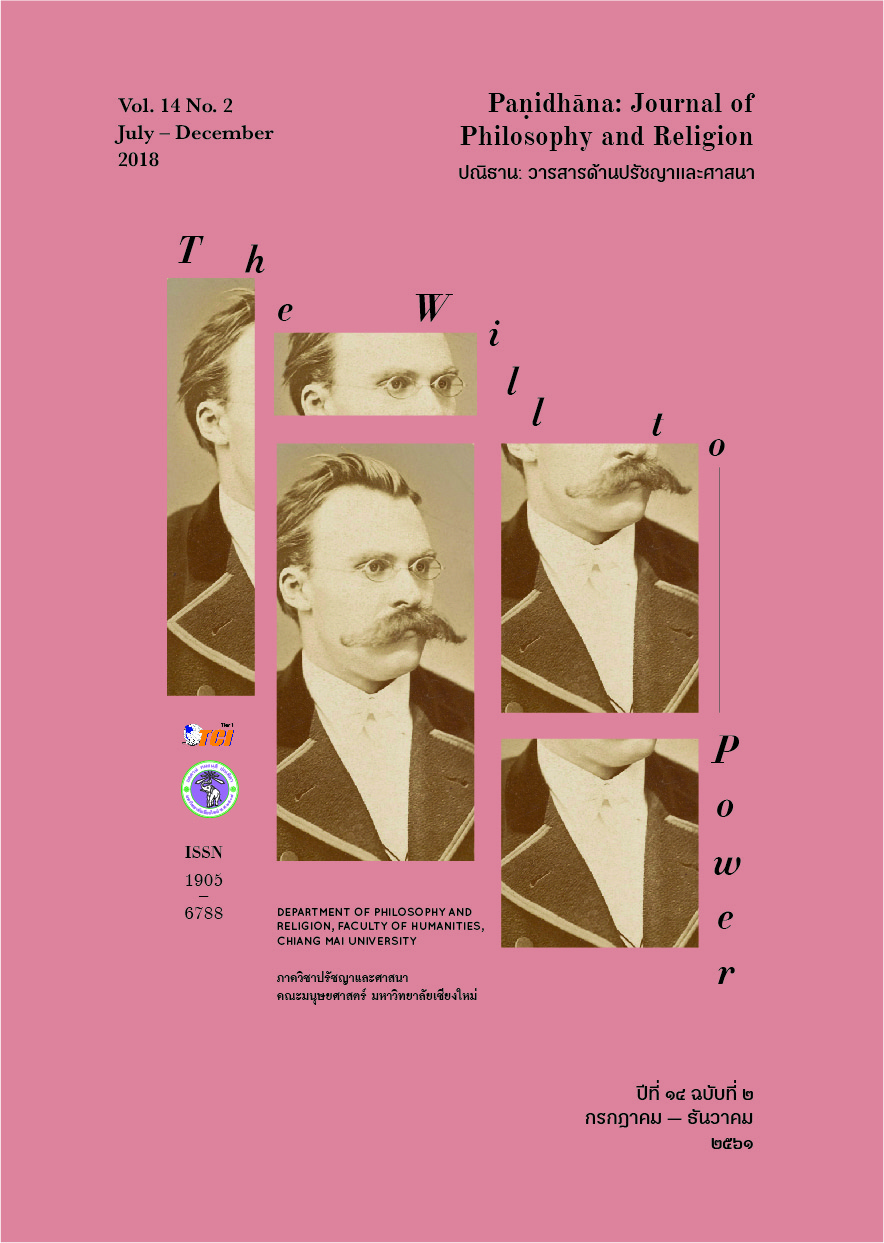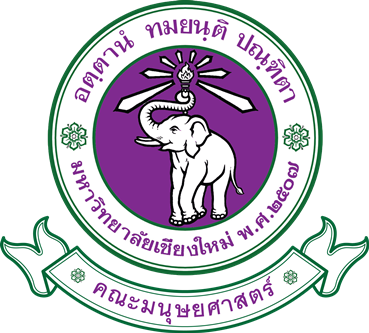King Chulalongkorn’s Travel Writing and Merleau-Ponty’s Philosophy of Bodily Perception
คำสำคัญ:
Travel writing, King Chulalongkorn, Merleau-Ponty, Perception, Ontology, Literary Criticismบทคัดย่อ
The French philosopher Maurice Merleau-Ponty proposes in his renowned Phenomenology of Perception (1962[1945]) that perception, or the way in which we know the world, emerges through the dynamic operation of the sensory system of our body upon the physicality of the world. However, this ability to bodily perceive the world, as Merleau-Ponty has further argued, would also require a paralleling process of the self to be concentrated on the physical interaction with the worldly objects. In this paper, I use this philosophical idea of Merleau-Ponty to read Far from Home (1907), which is the travel journal of King Chulalongkorn of Siam, written while he was traveling to Europe for the second time to recover from the ailing health condition. Previous research has tended to treat Far From Home as a piece of historical “text” which can be interpreted to understand a broader history or the king’s literary genius. These views are problematic as they have overlooked the ontological significance of the writing, particularly the “lived quality” of the journal’s narrative which was meant to bodily engage the readers and to help the king express his travel experience. In this paper, I argue we can come to understand this lived experience of writing of Far From Home through Merleau-Ponty’s philosophy of bodily perception, and the application of this philosophical idea helps open up a new way of literary inquiry, at least the field of travel writing.
เอกสารอ้างอิง
Carman, Taylor. (2008). Merleau-Ponty. New York: Routledge.
Chulalongkorn, King. (1907). Far From Home [Klai Ban]. Bangkok: Vajirayana (online archive). http://vajirayana.org/พระราชนิพนธ์เรื่องไกลบ้าน (accessed 15 June 2018).
Heidegger, Martin. (1996[1953]). Being and Time. Albany, NY: State University of New York Press.
Jidapha Jotidilok. (2016). The influence of European urban landscape on Bangkok urban landscape during the reign of King Chulalongkorn (Rama V) (Master’s thesis). Chulalongkorn University, Bangkok, Thailand.
Krairoek Nana. (2005). Plik tamnan ror 5 sadet praphat Europe [Rediscover King Rama V’s travel to Europe]. Silapawatthanatham, 27(2): 118-133.
Merleau-Ponty, Maurice. (2002[1945]). Phenomenology of Perception. London and New York: Routledge.
Nopparat Sa-ne. (2015). Kan chai kham lae samnuan phasa nai phra ratcha-niphon klai ban [language use in King Chulalongkorn's Far from Home]. Warasan phasa lae wannakhadi Thai [Thai language and literature], 32(1): Page not available. https://www.tci-thaijo.org/index.php/THlanglit/article/view/59512 (accessed 28 June 2018).
Phornchai Naksrithorng. (2011). Phra krayahan nai phra batsomdet phra-chao-yuhua khrao sadet praphat ton [Foods of King Chulalongkorn when traveling upcountry]. Humanities and Social Sciences Journal, Thaksin University 6(1): 233-252.
Plath, Silvia. (1963). The Bell Jar. New York: Harper & Row.
Romdenh-Romluc, Komarine. (2001). Routledge Philosophy Guide Book to Merleau-Ponty and Phenomenology of Perception. London & New York: Routledge.
Sor-rasak Chusawat. (2011). Meua torng sadet klai ban [When the King had to travel from home]. Bangkok: Matichon.
Vannaporn Phongpheng. (2004). Phasa jintaphap nai ruang Klai Ban [The lanugaeg of imagery in King Chulalongkorn’s Far from Hom] (Master’s thesis). Chulalongkorn University, Bangkok, Thailand.
ดาวน์โหลด
เผยแพร่แล้ว
รูปแบบการอ้างอิง
ฉบับ
ประเภทบทความ
สัญญาอนุญาต
เนื้อหาของบทความที่ได้รับการตีพิมพ์ในวารสารปณิธานถือเป็นลิขสิทธิ์ของวารสารปณิธาน ห้ามเผยแพร่ ตัดต่อ แก้ไข หรือนำไปใช้ก่อนได้รับอนุญาต
ผู้สนใจสามารถติดต่อขอเผยแพร่เนื้อหาในวารสารปณิธานได้ที่ panidhana-human@cmu.ac.th







